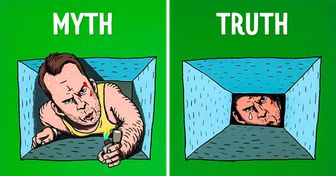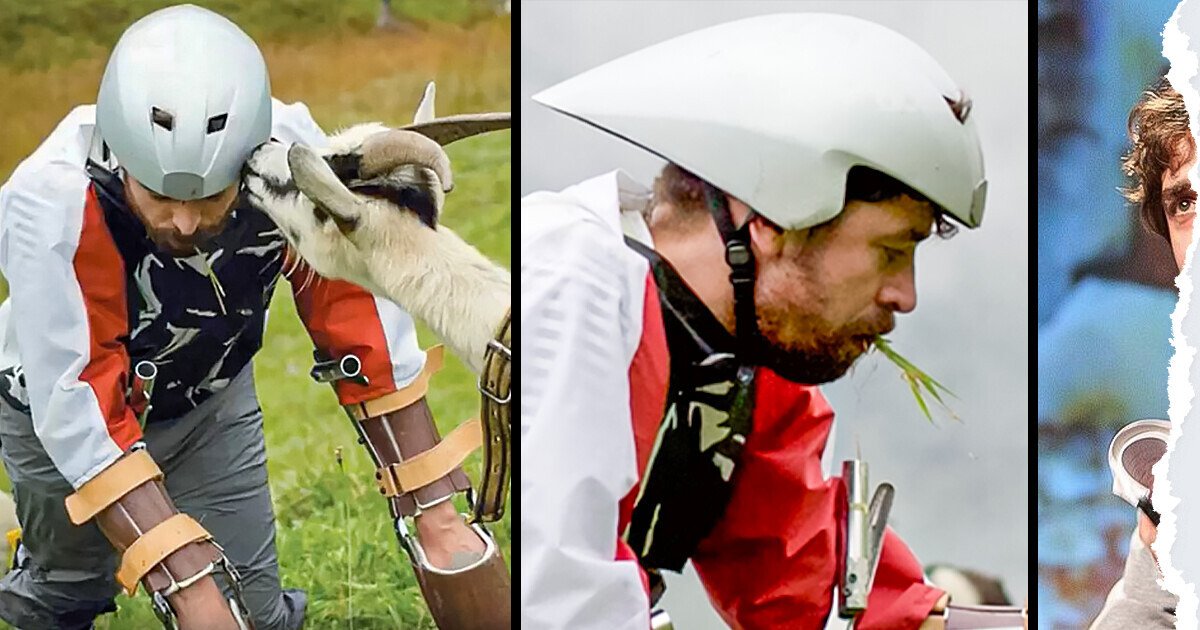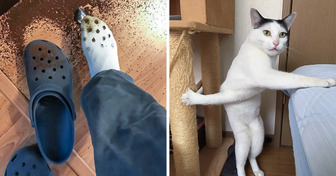12 Myths We Believe in Thanks to Hollywood


A then 33-year-old British freelance graphic designer found himself drowning in financial struggles, desperately sending out résumés. But he had a genius idea to escape the chaos of adulting—he decided to become a carefree goat. No bills, no job, just chilling in a field, munching on grass, and oozing cuteness. Let’s see how it went for him.
In 2014, Thomas Thwaites faced financial struggles, residing with his father, and fruitlessly sending out résumés.’I was fed up with life so went and lived like a goat in Swiss Alps." Burdened by worries, he yearned for a respite from life’s complexities—not just a break from work but an escape from his very self.
Initially, he aspired to secure a grant that would allow him to transform into an elephant and traverse the Alps. His vision entailed adapting his human anatomy to that of a quadruped, creating an artificial prosthetic stomach for grazing, refining his senses to experience life as an elephant would.
However, upon visiting South Africa and observing elephants up close, he realized the impracticalities of his plan. Becoming an elephant would require constructing a contraption the size of a small car, and he also discovered that elephants experienced emotions akin to human pain and sadness. A meeting with a shaman led him to understand that, spiritually, he was more akin to a goat.
In 2014, he constructed a goat outfit with prosthetic legs, enabling him to assume a quadruped form and place 60 percent of his walking weight on his front limbs—just as a goat walks. With determination and safety in mind, he added hinged arms, wore a waterproof jacket, and protective gear. His goal was to experience life as a goat and find solace in simplicity.
During his research, he delved into their thinking patterns and discovered that goats are likely living in the present, without much ability to ponder the past or future due to their limited episodic memory.
In his endeavor to become a goat, he faced the challenge of nutrition since humans can’t digest grass like goats do. So, he devised an artificial stomach to compromise. Once his goat outfit was ready, he stayed on a goat farm in Switzerland for six days, sleeping in a barn with the goats at night and living as a goat during the day. Thwaites noted, “I suffered quite a lot as a goat, because of the slope I was constantly falling over, and of course I had to eat grass.”
On his first morning as a goat, Thwaites rose at 4 a.m. to join his hosts in milking their herd of 60 animals. Following that, the goats were to be taken down the mountain. Given his smaller and slower stature compared to the average goat, Thwaites was granted a head start. However, he soon realized the challenges of walking downhill in his fake goat outfit.
“I very quickly discover that walking downhill on four legs is extremely difficult. I stumble down the slope toward the barn . . . my front legs slipping from under me on the wet stone.”
As the day wore on, a combination of rain and sweat made Thwaites’ goat life less glamorous than he had thought, and he found himself yearning for the comfort of a warm fire. Deciding to take a break from his goat persona, he removed the goat suit and skillfully built a campfire. Seeking respite, he heated up the grass he had been chewing on all day, seeking warmth and a moment of familiar human comfort.
Once the grass was warmed, and he confirmed it had broken down into sugar with a chemical test, Thwaites attempted to dine like a goat. However, he quickly discovered that goat cuisine, as it turns out, tastes awful to non-goats. In his own words, he described the experience, “I tuck into the most unappetizing meal of my life: burnt grass stew. It doesn’t taste particularly sweet. Nor does it seem to me particularly nutritious.”
Later, back at the farm, his hosts served him a delicious pot of goat stew, which only emphasized the stark contrast in culinary experiences. Ultimately, Thwaites came to the realization that life as a human goat was not as fulfilling as he had hoped it to be. The experiment revealed that the romanticized idea of being a goat was far from the reality he experienced during his six-day journey.
After his goat adventure, Thwaites took Sepp’s comment to heart. The goat farmer, living a peaceful life on a remote mountaintop with only his family and goats, called Thwaites “crazy” for his city lifestyle and suggested a simpler path.
Reflecting on this, Thwaites had an epiphany. If his aim was simplicity, maybe becoming a goat farmer rather than a goat himself was the better choice. Back in home, while researching the future of work, this idea led him to consider a life closer to nature and simplicity, much like that of a goat farmer.











